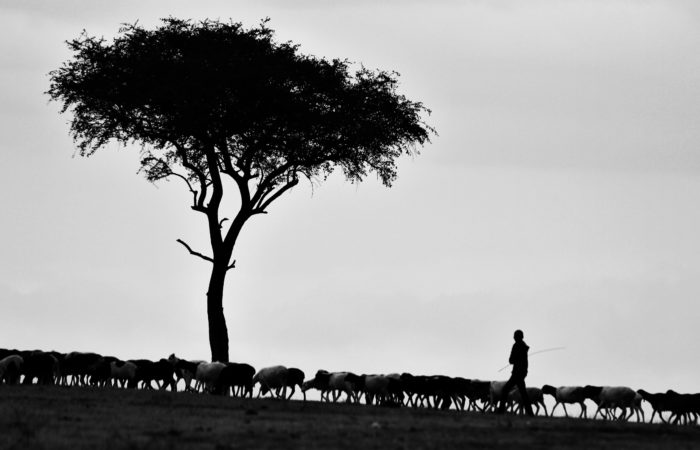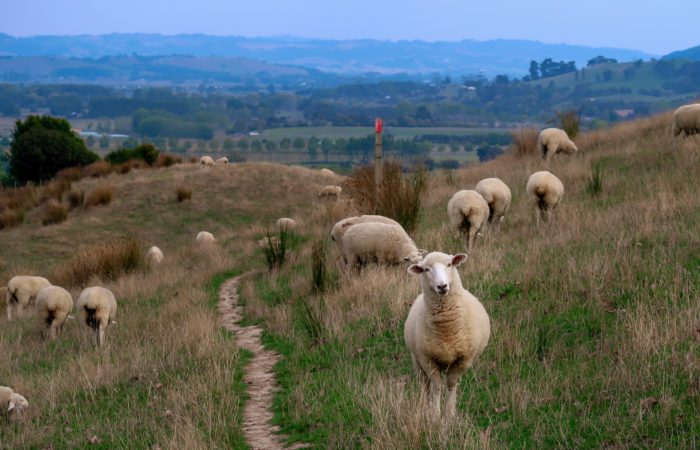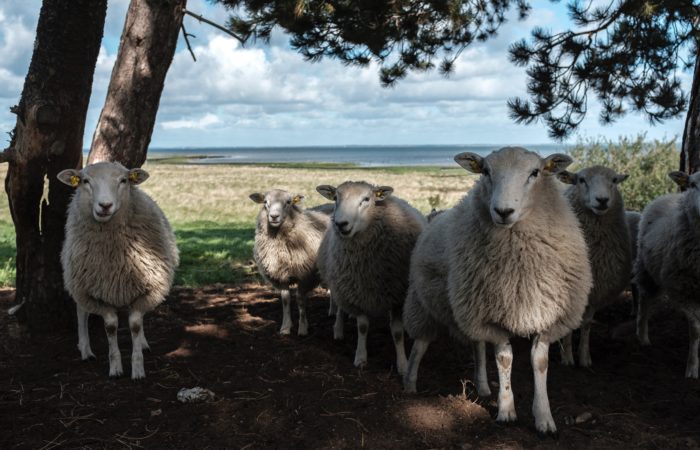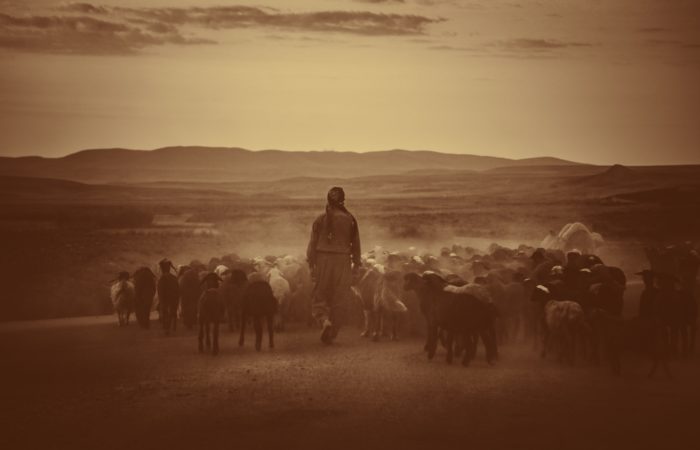
Moving, the Unknown and Self-Discovery
Following the Lord just might move you from a place of familiarity and onto a transformational journey filled with uncertainty and discomfort.
Abram (later named Abraham) set out for a foreign land and fulfilled a mission that God had given him and his family. Leaving the familiarity of Ur, and later Haran, must have been difficult. Notice how the text doesn’t record the Lord specifying the destination to Abram, though we know it to be Canaan from our vantage point thousands of years later. It is even more challenging to follow God when we aren’t told where we’re headed but simply commanded to “go.”

For His Name’s Sake
The writer of the 23rd Psalm, traditionally attributed to King David, uses this image of a shepherd who is Yahweh himself, a Kingly Shepherd who leads us daily in paths just like he did for the Hebrews in their wilderness wanderings for forty years in the desert. David explains that God chooses to shepherd us “for his name’s sake” (Psalm 23:3c). What does this mean? Let’s first talk about God’s name, Yahweh.
Read Post
Paths of Righteousness
When I think of the word “righteous,” positive connotations don’t come to mind immediately. For example, when someone is called “self-righteous,” that certainly isn’t a compliment! Thinking of people who are considered “righteous” may elicit a picture of someone adhering to rigid fundamentalism or legalistic religion. So, what did the Psalmist intend to convey with the phrase “paths of righteousness”?
Read PostDon’t Overindulge!
Reading just the first two verses of Psalm 23 reveals a good God who promises to shepherd you personally towards contentment and rest amidst an environment that is dangerous and uncertain. The Psalmist emphasizes that this abundance includes the physical, but also surpasses it, by saying that this shepherd “restores my soul” (23:3).
Read Post
Quiet Waters
Psalm 23 assumes you know that shepherding happened in a wilderness with rugged terrain, wild animals, thieves and even flash floods. This kind of difficult environment is where Jesus the Shepherd promises to be with us, lead us and fill us with goodness.
Read PostWhere Are Those Green Pastures?
When I travelled to Israel some years ago I went looking for the green pastures (and the girls with bonnets) that I envisioned from the Christian bookstore posters I had seen growing up. But the time of year that I went to Israel was quite dry, as it often is, so the wilderness was rocky and arid. I had to be reminded that the work of a shepherd was most often not an easy one. Not only did he (or she) have to fight off wild animals looking to feed on the sheep, but the topography of the land might not be advantageous to easily keeping them alive. A good shepherd not only had the heart to provide abundant pastures to feed on, he had the skills to find enough food to keep the sheep alive. God is portrayed in Psalm 23 as a generous shepherd whose sheep have had their fill to eat. They can lie down because they’re full. They’re resting because they’ve feasted abundantly on what the shepherd provided.
Read Post
Life Without Lack
Believing that God offers a life that lacks nothing might be theologically simple for some, but for everybody there comes a time when our daily lives clearly don’t feel like a life of abundance. We get a cancer diagnosis. We lose our sobriety. The investment doesn’t work out. A relationship sours. Depression comes back. Our leadership is criticized. A rumor spreads. An unjust rule hinders us. When life seems to crumble, where is this “life without lack” that Psalm 23 offers?
Read Post
A Suffering Shepherd
The picture I get of Jesus as I read Psalm 23 (and the Gospels) is one of a brave shepherd who leads a suffering people through dark valleys, securing people with love so they can do justly, love mercy and walk humbly with Yahweh (Micah 6:8). I hope this picture of the Suffering Shepherd both comforts you amidst challenges and confronts you to be a better leader.
Read PostA Kingly Shepherd
When you do usually hear Psalm 23? Most often you will hear it recited as part of a funeral, emphasizing God’s presence and ongoing care of the one who has died. You would be hard pressed to find Psalm 23 in a wedding! But it’s nevertheless unfortunate that Psalm 23 gets relegated primarily to funerals because it really is a Psalm for everyday life. We need Yahweh not only as we transition from this earth, we need him as a Kingly Shepherd every day.
Read Post
Refuge in the King
King Jesus not only demands our total commitment, he provides a place of rest for the weary. This commitment to have Jesus rule my life begins with and is sustained by taking refuge in this good and powerful king.
Read Post
The King, The Son, The Messiah
Psalm 2 is the only place in the Old Testament where God’s Messiah, God’s king and God’s Son are all spoken of in one place. Christians cannot help but think of Jesus when they read this Psalm. All the other kings must answer to this one true king (Psalm 2:6), God’s own son (Psalm 2:7), the anointed (Psalm 2:2). Psalm 2 paints a picture of a king who expects his followers to daily submit their little kingdoms under his lordship.
Read Post
I Am Not
Knowing that you aren’t the messiah of your company, your ministry, your family or your community is a good thing! John modeled and Patrick lived what all followers of Jesus should aspire to be: humble servants who know that the only joy in life is found by submitting to Jesus, our humble Lord.
Read Post
Making a Statement
Our leadership may call us to confront some kind of system, power or authority in order to do what’s best for the people and organizations we serve.
Read Post
Reflecting the Light
Yesterday, we reflected on how John got his nickname, the Baptizer. Today, we will see another name for John—a witness. John the Baptizer’s ministry is clearly given as a “witness” to the light so that “all might believe” in the Logos, the Word, who is Jesus Christ (1:7). Now, the word “witness” is an important word in John’s gospel, showing up 14 times compared to only three in the Synoptics… John being described as a witness informs modern Christians how we should we be identified as well.
Read Post
What’s in a Name?
I’ll be calling John the Baptist, John the Baptizer because there were no Baptists or Presbyterians or Pentecostals back in the first century! John got his name because he was known to live fully for the Lord, spending his life baptizing people into God’s family. John got his nickname from what people saw. If someone could observe you all day, what could your nickname be? Grumpy Glen? Caffeine Carol? Netflix Nate? Drama Dan?
Read Post